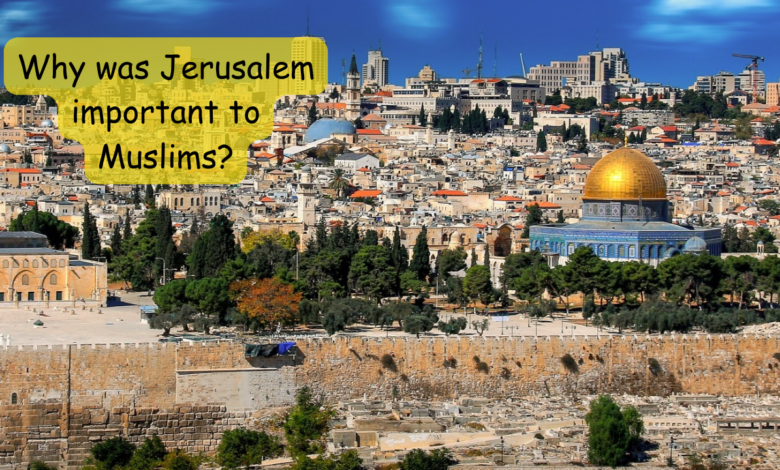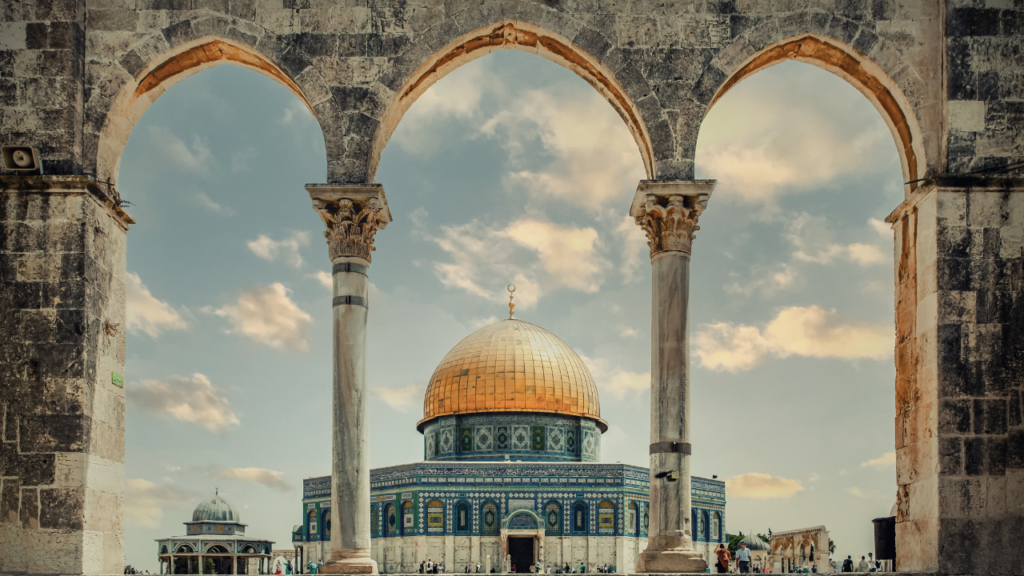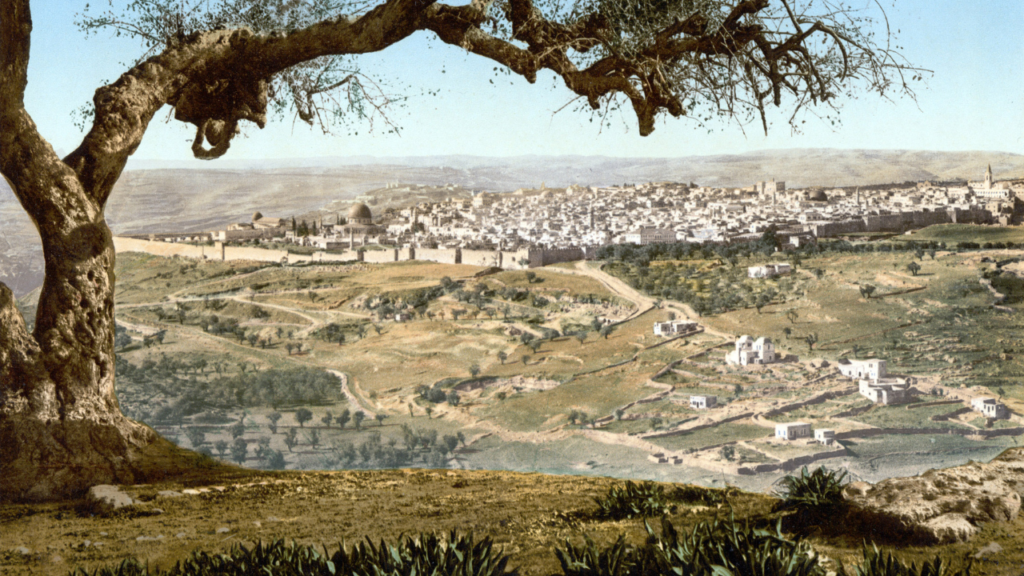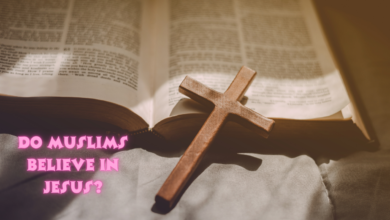
Why was Jerusalem important to Muslims?
Jerusalem is significant to Muslims primarily because it houses two of the holiest sites in Islam: the Al-Aqsa Mosque and the Dome of the Rock. These sites are associated with important events in Islamic tradition and hold great religious and historical significance.

Introduction
Jerusalem, a city steeped in history and religious significance, holds a special place in the hearts of Muslims around the world. Often referred to as “Al-Quds” in Arabic, this ancient city is not only one of the holiest sites in Islam but also a symbol of cultural and historical importance. To understand why Jerusalem is so important to Muslims, it is essential to delve into the historical, religious, and spiritual connections that have forged this profound bond over centuries.
Historical Perspective
Jerusalem’s importance to Muslims has deep historical roots that extend back over 1,400 years. It all began with the Islamic prophet Muhammad during the 7th century CE. According to Islamic tradition, in the year 621 CE, Muhammad experienced the Isra and Mi’raj, a miraculous night journey and ascension to the heavens. During this spiritual event, it is believed that Muhammad was transported from the Kaaba in Mecca to the Al-Aqsa Mosque in Jerusalem, where he led prayers with other prophets and met Allah.
This event, described in the Quran, solidified Jerusalem’s significance as a holy place for Muslims. It marked the connection between Islam and Jerusalem, making the city a revered site for generations to come.
Religious Significance
Jerusalem holds religious importance for Muslims due to several key factors:
- The Al-Aqsa Mosque: Located within the Old City of Jerusalem, the Al-Aqsa Mosque is the third holiest site in Islam, following the Kaaba in Mecca and the Prophet’s Mosque in Medina. The name “Al-Aqsa” means “the farthest,” alluding to its location as the furthest mosque mentioned in the Quran. Muslims believe that prayers offered at this mosque hold a special significance and spiritual reward.
- The Dome of the Rock: Adjacent to the Al-Aqsa Mosque stands the iconic Dome of the Rock, an architectural marvel that houses the Foundation Stone. According to Islamic tradition, this is the spot from which Prophet Muhammad ascended to the heavens during the Isra and Mi’raj. The golden dome and intricate tilework make this shrine a symbol of Islamic art and heritage.
- Prophetic History: Jerusalem is associated with numerous prophets and figures in Islam, including Ibrahim (Abraham), Musa (Moses), and Isa (Jesus). These prophets played significant roles in Islamic history, and their connection to Jerusalem adds to its religious significance.
- Spiritual Connection: Many Muslims have a deep desire to visit Jerusalem as a form of religious pilgrimage and to pray at the Al-Aqsa Mosque. This spiritual connection draws Muslims from all over the world to the city, fostering a sense of unity and belonging within the Muslim community.
Also Check
- Why do Muslims cover their face?
- Who was the first Muslim?
- Where are the 25 Prophets of Islam in order?
- How many Wives did Prophet Muhammad (PUBH) have?
- Does Islam use the old testament?
Political and Contemporary Significance
Jerusalem’s importance to Muslims extends beyond its religious significance. The city’s political and contemporary significance cannot be ignored. The ongoing Israeli-Palestinian conflict has made Jerusalem a focal point for political tensions in the Middle East. Many Muslims view the status of Jerusalem as a litmus test for justice and international diplomacy. They advocate for the city to be recognized as the capital of a future Palestinian state, a position rooted in historical claims and principles of justice.
Conclusion
Jerusalem’s significance to Muslims is deeply rooted in history, religion, and spirituality. It is a city that has played a central role in the development of Islamic faith and identity. Beyond its religious importance, Jerusalem carries political and contemporary significance for Muslims around the world. Recognizing the multifaceted importance of Jerusalem to Muslims is essential for fostering understanding and dialogue in the complex geopolitical landscape of the Middle East and beyond.

FAQs: Why is Jerusalem Important to Muslims?
Why is Jerusalem important to Muslims?
Jerusalem is significant to Muslims primarily because it houses two of the holiest sites in Islam: the Al-Aqsa Mosque and the Dome of the Rock. These sites are associated with important events in Islamic tradition and hold great religious and historical significance.
What is the significance of the Al-Aqsa Mosque in Jerusalem for Muslims?
The Al-Aqsa Mosque, located in the Old City of Jerusalem, is believed to be the third holiest site in Islam. Muslims believe that it is the place from which the Prophet Muhammad ascended to the heavens during the Night Journey (Isra and Mi’raj). This event is a pivotal moment in Islamic history and spirituality.
What is the Dome of the Rock, and why is it important to Muslims?
The Dome of the Rock, also situated in Jerusalem, is another revered site for Muslims. It is believed to mark the spot where the Prophet Muhammad ascended to heaven during the Night Journey. Additionally, it encompasses the Foundation Stone, which holds significance in Islamic tradition as the place from which the Prophet Muhammad ascended.
Are there any other reasons why Jerusalem is important to Muslims?
Yes, aside from its religious significance, Jerusalem is also important to Muslims due to its historical role as an Islamic city. It served as the first qibla (direction of prayer) for Muslims before it was changed to Mecca. Moreover, it holds a place in the hearts of Muslims worldwide as a symbol of resilience and faith.
How does Jerusalem’s importance manifest in Islamic culture and tradition?
Jerusalem’s significance is evident in various aspects of Islamic culture and tradition. Muslims often mention Jerusalem in their prayers and supplications. Additionally, many Muslims aspire to visit and pray in Al-Aqsa Mosque as it holds spiritual rewards and blessings.
Is Jerusalem important only to Arab Muslims?
No, Jerusalem is important to Muslims from various ethnic backgrounds and regions around the world. It is considered a universal symbol of Islamic heritage and faith, transcending ethnic or national boundaries.
What are the contemporary political implications of Jerusalem’s importance to Muslims?
The status of Jerusalem has been a contentious political issue, with various Muslim-majority countries advocating for the recognition of East Jerusalem as the capital of a future Palestinian state. The Israeli-Palestinian conflict has roots in part due to the significance of Jerusalem to both Muslims and Jews.
How do Muslims view the protection and preservation of Jerusalem’s religious sites?
Muslims generally view the protection and preservation of Jerusalem’s religious sites as a religious duty. They advocate for access to these sites and their protection under international law to ensure that they remain accessible and intact for future generations.
Are there any Islamic religious events or celebrations associated with Jerusalem?
There are no specific religious events or celebrations directly linked to Jerusalem in the Islamic calendar. However, the Night Journey and Ascension (Isra and Mi’raj) is commemorated by some Muslims as a special occasion to remember the Prophet Muhammad’s journey to Jerusalem and ascent to the heavens.
ow can non-Muslims show respect for Jerusalem’s importance to Muslims?
Non-Muslims can show respect by being aware of the religious significance of Jerusalem to Muslims and by respecting the customs and practices associated with Islamic sites in the city. Visitors should dress modestly and follow local guidelines when visiting religious sites to maintain a respectful atmosphere. Additionally, supporting peaceful resolutions to political conflicts related to Jerusalem can also contribute to its significance for all parties involved.





